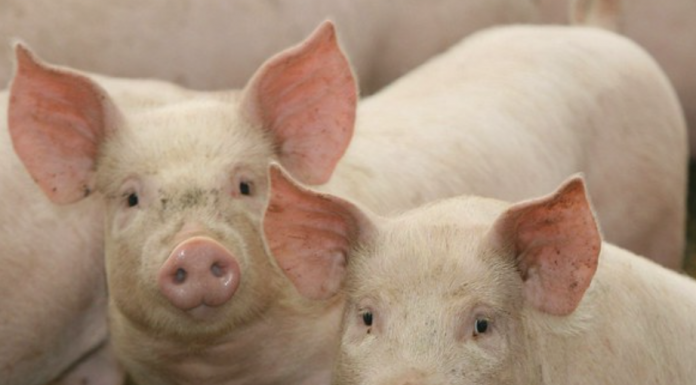FOOD SAFETY NEWS – A candidate vaccine, known as ASFV-G-DI177l—efficiently protects against African swine fever, USDA announced Thursday.
USDA’s Agricultural Research Service (ARS) published new research that highlights a new vaccine candidate that has been shown to prevent and effectively protect both European and Asia bred swine against the current circulating Asian strain of the virus.
A pandemic of African Swine Fever, centering on China, has swept through 14 Asian and European Counties since 2007, requiring those countries to destroy swine valued at $55 billion to $130 billion.
African Swine Fever has not reached North America, but it’s getting closer. AFS arrived this year on the Caribbean island of Hispaniola, shared by Haiti and the Dominican Republic.
The AFS virus is not a threat to human health and it is not transmitted from pigs to humans, nor does it put food safety at risk.
However, when it burns through entire swine populations, it has not been possible to stop it from destroying all the infected animals. That’s because until now there’s been no cure or vaccine.
Thursday’s report of a candidate vaccine being effective means North American pork producers may have a defense against the deadly virus before it reaches their pigs.
The USDA’s ARS reports that the vaccine candidate is effective in all swine by the fourth week after vaccination. It says “scientists have developed a vaccine candidate with the ability to be commercially produced while still maintaining the vaccine efficacy against Asian ASF virus strains when tested in both European and Asian swine breeds.”
“We are excited that our team’s research has resulted in forming vaccine candidates that are able to prevent and protect different swine breeds against the current ASF virus,” said ARS Administrator Chavonda Jacobs-Young. “Vaccine candidates could play an important role in controlling the outbreak threatening global swine health.”
Secretary of Agriculture Tom Vilsack applauded both ARS and USDA’s Animal and Plant Health Inspection Service (APHIS) for the progress on keeping AFS at bay.
“USDA agencies are working together to protect U.S. livestock from foreign and emerging diseases that could harm our economy and public health,” Vilsack said. “I am proud of the extraordinary research underway at the Agriculture Research Service to develop vaccine candidates to prevent African Swine Fever virus.”
The Secretary said APHIS has done “tremendous work” in protecting the U.S. swine industry. “Scientific research, discovery, surveillance, and detection are critical to solving challenging problems that American producers face keeping the food supply robust and safe,” he said.
The vaccine research, published in the journal Transboundary and Emerging Diseases, shows that ARS scientists have developed a vaccine candidate with the ability to be commercially produced while still maintaining its vaccine efficacy against Asian ASF virus strains when tested in both European and Asian swine breeds.
“This is a major step for science and agriculture,” said ARS researcher Manuel Borca. “We are working carefully to see our vaccine candidate commercialized through the joint efforts of the U.S. government, and our commercial partner, the Navetco National Veterinary Joint Stock Company.”
To date, ARS has successfully engineered and patented five ASF experimental vaccines and has fully executed seven licenses with pharmaceutical companies to develop the vaccines. ARS continues to evaluate additional commercial partners to develop these vaccines.
(To sign up for a free subscription to Food Safety News, click here.)



